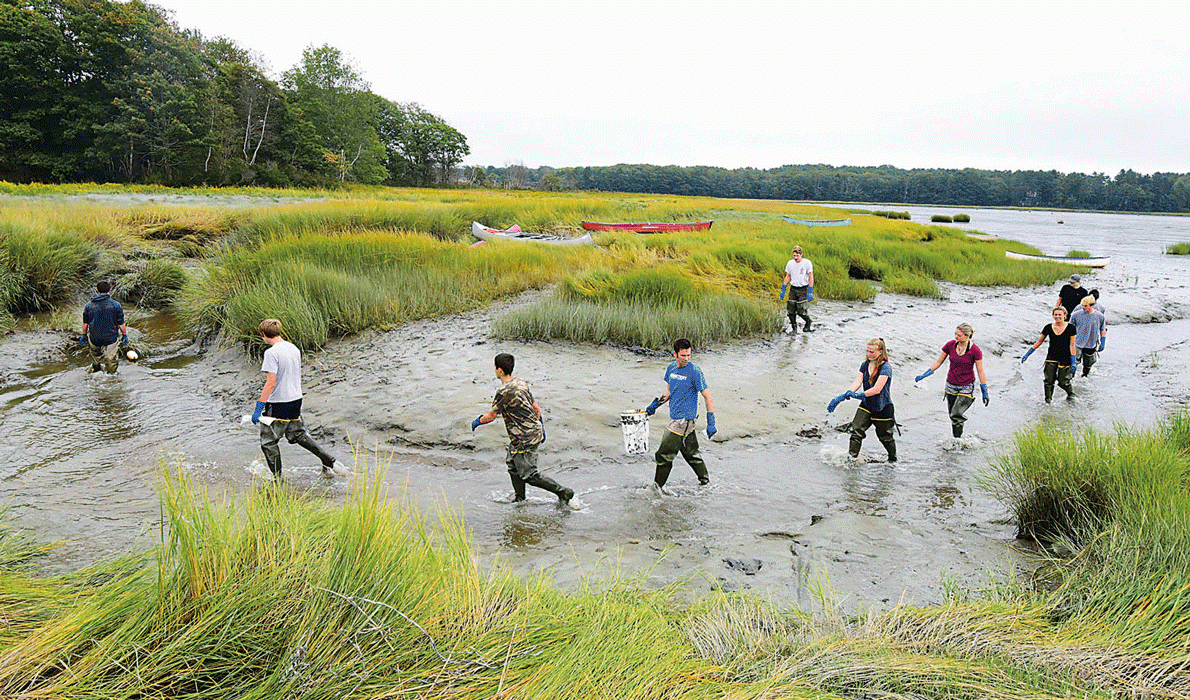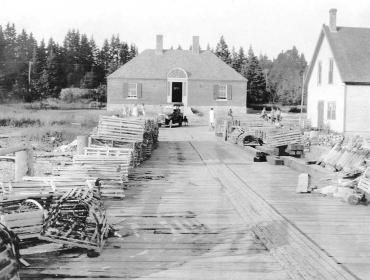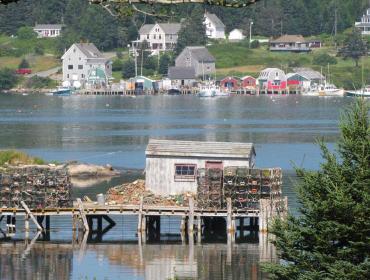Posted October 31, 2018
Last modified November 20, 2018

KELLI PARK
Brunswick High School Marine Biology students check green crab traps with their teacher, Andrew McCullough.
Story and Photos by Kelli Park
Young marine entrepreneurs in Maine are seeing new opportunities evolve almost as quickly as the changing tides. In Brunswick, the Student Shellfish Initiative is helping some of those young entrepreneurs tap into the potential that lies just beneath the surface of the water—and the mud.
With 66 miles of coastline and eight miles of deep water frontage, the mudflats in Brunswick are arguably the “most valuable real estate in town,” according to the town’s Marine Resource Officer Dan Devereaux. The shellfish industry in Brunswick alone is valued at $4 million, although the ecological value is priceless.
“Trying to relay that importance to the younger generation is really a critical part of keeping our coastline the least gentrified that we can to keep areas working,” explains Devereaux.
The Student Shellfish Initiative is a collaboration among Brunswick High School, the town of Brunswick, and The Tidelands Coalition, a nonprofit organization that promotes marine conservation. Brunswick High School students learn the value of hands-on marine research in the outdoor classroom on the mud flats at Wharton Point on Maquoit Bay, collecting data on shellfish species and seeding the flats with soft-shell clams from the Down East Institute.
The growing popularity of the Brunswick Student Shellfish License Program is attributed to the interactive experience provided by the outdoor classroom within the past two years. Fifteen student licenses were issued this year, with most students actively digging daily during the summer; a few years ago, only ten licenses were issued with two students actively digging.
Devereaux is currently exploring the idea of developing a mentoring program to promote sustainable practices within the industry. He hopes the Student Shellfish Initiative can be used as a model for other coastal towns.
“If we can get a base of educated diggers, we’re going to be able to manage the resource more intricately and more surgically,” he says. “As we start to educate newer groups of harvesters coming in, getting these students involved and interested at a young age is critically important to keeping this industry alive and thriving.”
Devereaux believes that change is necessary. The industry cannot sustain itself with the same boom-and-bust approach that has been in place over the past century. Many students involved in the program are now exploring the possibilities in aquaculture in response to the changing industry.
Max Burtis, Max Friedman, and Samuel Dorval, all graduates of Brunswick High School and current college freshmen, have taken their entrepreneurial spirit to the next level with the creation of Ferda Farms on the New Meadows River. They started by harvesting clams at low tide, and then began to explore ideas for generating supplemental income during high tide. The business partners chose their name as an ode to their love for hockey; players use the slang term “ferda” as a shortened version of “for the boys.”
In July, Ferda Farms started with 50,000 oyster seeds from Muscongus Bay Aquaculture and has since expanded to 100,000 oysters. According to Burtis, everyone in the aquaculture industry has been more than willing to share their knowledge and experience, because, he says, “There’s still so much to be learned.”
Burtis has an entrepreneurial mind and believes the job market is a trap for many people. The young men talk about how most people their age are washing dishes, serving ice cream, or working retail.
“It gets the best of a lot of people. They get caught in a place where they don’t want to be,” says Burtis.
“It’s really cool to feel like you’re actually starting something,” says Friedman. “It says something to have a vision.”

KELLI PARK
From left, Max Burtis, Chris Burtis, and Max Friedman enjoy a day's work in the autumn sun.




